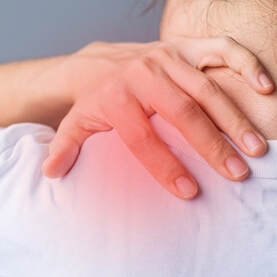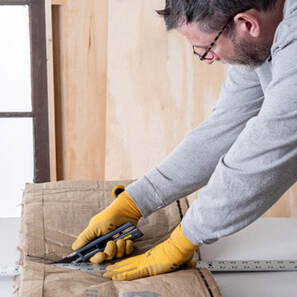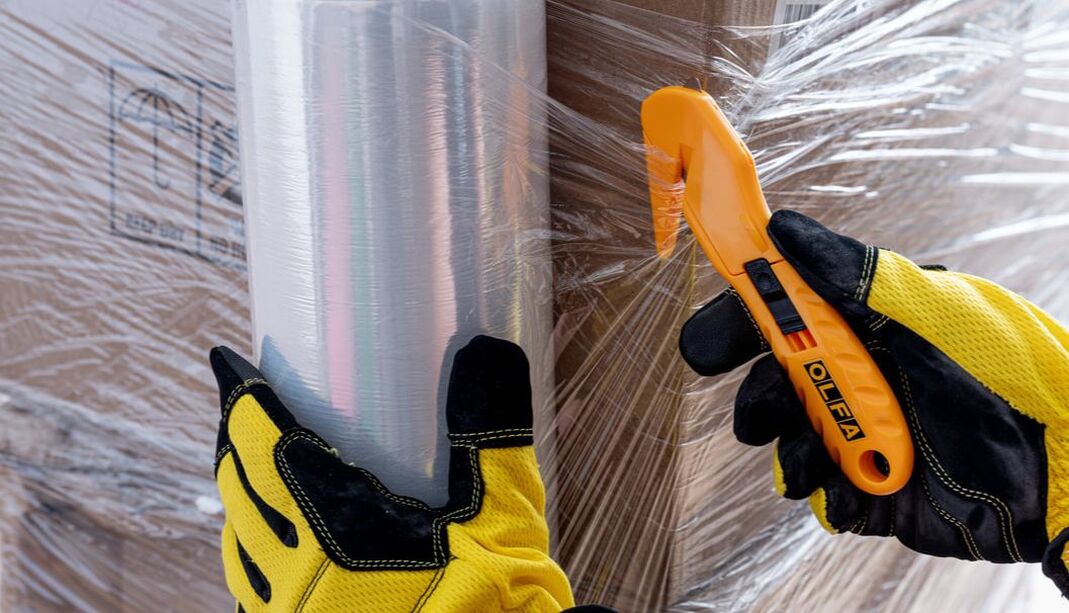Boost productivity & safety: The impact of ergonomics in tool design
September 13, 2023
By OLFA for the Blue Print
By OLFA for the Blue Print
|
Tools play an integral role in our daily lives, from simple hammers to self-retracting safety knives. They extend our capabilities and assist us in accomplishing complex tasks that would otherwise be challenging or laborious. However, one often overlooked but crucial aspect of these indispensable aids is their design. Particularly their ergonomic design. This article dives into the subject of ergonomics, highlighting its pivotal role in tool design and how it enhances safety while boosting efficiency.
The importance of ergonomics in our daily life
Ergonomics revolves around creating workspaces that cater to the specific needs of users, with a focus on enhancing efficiency, productivity, and overall comfort. Consider the positioning of your computer screen or the height of your desk. Do you experience eye strain at the end of the day? Do your wrists ache from prolonged typing?
By applying ergonomic principles, these issues can be prevented or minimized. Ergonomics adapts tools to the user's requirements and emphasizes proper posture to mitigate the impact of repetitive movements. When incorporated into tool design, ergonomics not only ensures tools fulfill their intended functions but also optimizes human well-being and overall system performance. The impact of this seemingly small detail can be profound. Tools that disregard ergonomic principles can result in physical discomfort, decreased productivity, and in severe cases, injuries with long-lasting consequences. The promises of ergonomic tool designThe introduction of ergonomic principles into tool design has significantly enhanced the user experience. Ergonomically designed tools are crafted to align with the body's natural mechanics, thereby reducing the risk of discomfort or injury. These designs consider the natural movement of human limbs, the grip strength of our hands, and our limits before fatigue sets in.
The outcome is a tool that feels like a seamless extension of the user's hand, placing less strain on muscles and joints while offering a level of comfort that enables prolonged use without discomfort. This heightened comfort naturally translates into improved productivity, as users can operate these tools for longer periods with fewer interruptions caused by fatigue or injury. Ergonomic vs. traditional cutting tool
Traditional knives, with their rigid and one-size-fits-all approach, often lead to discomfort and hand strain during extended use. In contrast, OLFA utility and safety knives exemplify a different level of design excellence. These tools feature handles thoughtfully crafted to provide a comfortable grip, effectively reducing hand fatigue, and enhancing precision. Their meticulous attention to detail sets their tools apart, making them the preferred choice for individuals who prioritize both comfort and safety.
Recognizing & using ergonomic tools Developing the ability to identify ergonomically designed tools is crucial for those seeking to enhance productivity and safeguard their health. Look out for key features such as a comfortable grip that conforms to your hand, a balanced weight that doesn't strain your muscles, and controls that are easily accessible and operable. Furthermore, maintaining optimal form while using tools is essential to maximize the benefits of ergonomic designs. Avoid excessive muscle strain by gripping the tool gently, take regular breaks to prevent muscle fatigue, and for tasks requiring significant force, utilize your entire arm or body weight rather than relying solely on your hand and wrist. The power of choice lies in your hands
Ergonomically designed tools represent more than mere convenient objects; they embody an investment in your productivity, safety, and overall well-being. These tools remind us that even the most commonplace objects we interact with can be improved to enhance our comfort and efficiency.
Content originally from OLFA. Reused here with permission. Vertical Divider
|
|


